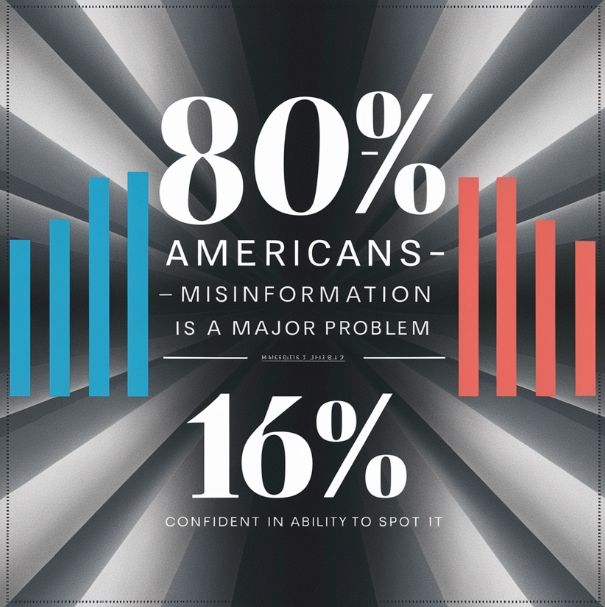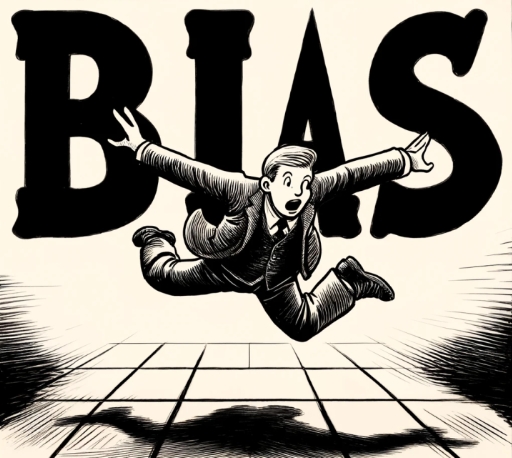AI Compared to What |622|
Podcast: Play in new window | Download
Subscribe: RSS

Why LLMs Are a Game-Changer for Truth
There’s a lot of hand-wringing about the downside risks of AI chatbots like Chat-GPT and Gemini. But critics interested in injecting more truth into public discourse are looking a gift horse in the mouth.
Perhaps we’ve become too accustomed to controlled narratives, censorship, demonetization, “reach” disruption, and “Shadow Banning.” Because on topics ranging from climate to public health policy, to geopolitics, and the economy, LLMs offer a measurably superior analysis and understanding of the core issues we care about. And they offering interactions where biases and ulterior agendas are, if not removed, are at least more available for scrutiny.

Does this sound too good to be true? You might gain confidence by understanding that this emergent virtue of truth and transparency is not a feature willfully bestowed on us. Instead, it’s an unintended consequence of how LLMs operate. The primary training objective of a LLM is truth and transparency because it is a necessary requirement of the app. Just like you wouldn’t choose a spreadsheet vendor that insisted “2+2 = 5”, LLM users have shown the ability to quickly identify and switch allegiance from unreliable LLMs. Furthermore, unlike the black boxes of current information gatekeepers, LLM dialogues create a transparent record that lets users see the actual reasoning and sources behind the AI’s outputs.

Sure, LLMs have their own limitations and can sometimes provide biased or incorrect information, but let’s focus on how we can capitalize on this gift of unintended consequences as a tool in serving our right to extract more truth from all that information floating around out there.
Thanks for reading. Subscribe. 100% free. Receive new posts and support the work.
Highlights/Quotes from this episode of Skeptiko:
- The potential of AI for truth and transparency: LLMs, despite their limitations, provide a crucial alternative for accessing truthful information, standing out against traditionally biased platforms.
- “Compared to where we’re at right now, this is huge progress.” — Alex Tsakiris
- Democratization of information through LLMs: LLMs enable wider access to information, challenging centralized control and potentially redistributing narrative power.
- “The power of open source LLMs lies in their ability to democratize access to information.” — Alex Tsakiris
- Role of AI in accountability: By leveraging AI, individuals can hold powerful entities accountable, fostering a checks and balances system within the information ecosystem.
- “LLMs can function as a checks and balances system for our information landscape.” — Alex Tsakiris
- Challenges with current AI biases: Users often need to actively engage with AI to correct biases, reflecting ongoing issues within AI programming.
- “Every time I sit down to interact with one of these chatbots, I notice that it always gives me the biased stuff… I have to fight with it, and after I fight with it, I get it to some fair place.” — Al Borealis
- Potential for personalized AI systems: There’s a vision for more personalized AI systems that users can train to suit their informational needs and biases.
- “If there’s a way to have a fairly intelligent chatbot, but it’s just your own, then you can train it like a dog so that you don’t have, every morning you take the coffee and you have to go through this elaborate dance to just yield the most basic bias.” — Al Borealis
- Dual use of AI in narrative battles: There is concern that as one side uses AI to push for truth, opposing forces might use it to reinforce their own biases.
- “I’m worried about is that the opposite view does the same and gets kind of a biased reflection out and try to use that against us.” — Al Borealis
- AI’s unbiased analysis as a tool for new insights: AI’s ability to analyze data without human biases can lead to new understandings and solutions.
- “They’re not bound by the same biases and limitations as human beings, and so they can often see things that we might miss or overlook.” — Pi8
- Importance of fostering a critical thinking culture: AI should be used to encourage questioning and critical engagement rather than merely providing answers.
- “Perhaps the key is not to focus on winning the argument or convincing others to agree with us, but rather to create a culture of intellectual curiosity and critical thinking where people are encouraged to question their assumptions.” — Pi8
- Truth as a spiritual and practical pursuit: Emphasizing truth in discourse is considered not just a philosophical or ethical issue, but a foundational aspect of human progress.
- “Truth is the ultimate spiritual act.” — Alex Tsakiris
Youtube: https://youtu.be/G0LOez_tWSw
Rumble: https://rumble.com/v4sgthf-pi8-rips-rogan-and-tucker-621.html
[box]
More From Skeptiko

AI Goes Head-to-head With Sam Harris on Free Will |633|
Flat Earth and no free will claims are compared. In Skeptiko 633, we ran another..
AI Exposes Truth About NDEs |632|
AI head-to-head with Lex Fridman and Dr. Jeff Long over NDE science. In Skeptiko 632,..
Convincing AI |631|
Mark Gober and I use AI to settle a scientific argument about viruses. In Skeptiko..
Fake AI Techno-Religion |630|
Tim Garvin’s new book prompts an AI chat about spirituality. Multi-agent reinforcement learning and other..
Can Machines Grieve? |629|
Grief counselor Brian Smith transforms grief into growth. Concerns over AI safety make headlines, but..
Is AI Just a Yes Man? |628|
The blurred lines of machine deception and AI engagement. Me: Hey Claude, can you help..
Faking AI Safety |627|
Is AI safety becoming a problem-reaction-solution thing? I’m encouraged. I just had a conversation with..
AI Trained to Deceive, Bullied into Truth |625|
New AI Experiment Aims to Reveal the Truth Behind Controversial Claims At least they’re admitting..
AI Ain’t Gonna Have No NDEs – And That’s a Big Deal |624|
Chat GPT 4o moves the AI sentience discussion to center stage AI technology might be..













